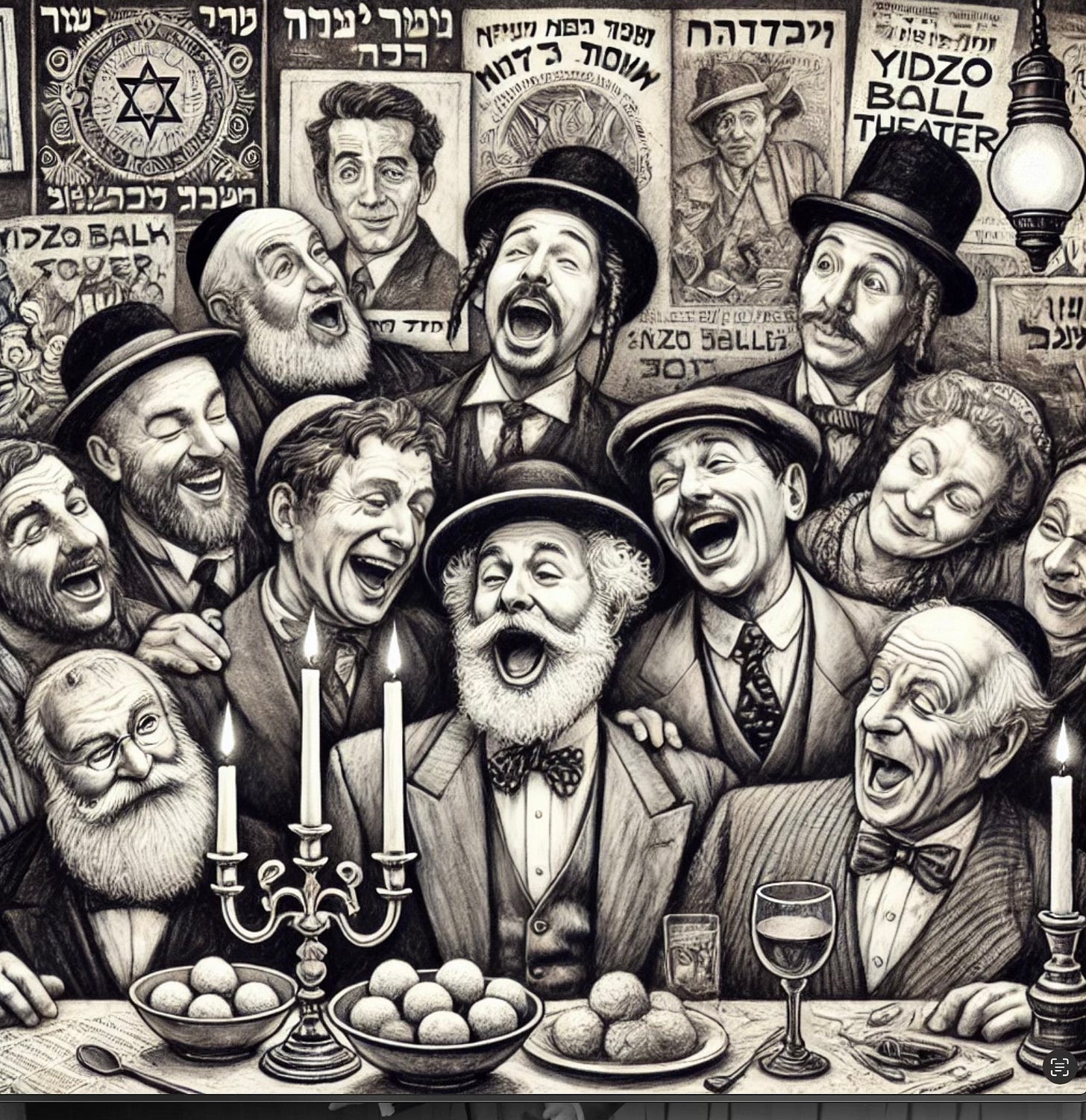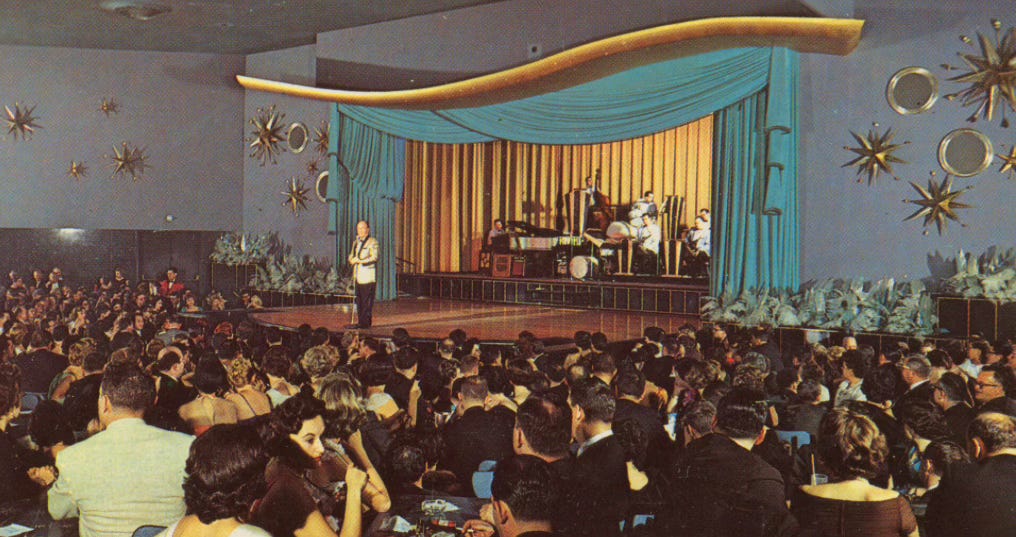Jewish Humor: A Legacy of Resilience, Adaptation, and Laughter
From the Catskills to TikTok
For decades, Jewish comedians have dominated the comedy landscape, from the Borscht Belt to Hollywood, late-night TV to Netflix specials. In 1978, Time magazine estimated that a staggering 80% of all American comedians were Jewish. That’s no small feat for a group that makes up less than 3% of the U.S. population. But what is it about Jewish culture, history, and perspective that has made it such a comedy powerhouse? Are Jews really the funniest people—or is there something deeper at play?
Comedy as Survival: The Roots of Jewish Humor
Jewish humor was born from hardship, oppression, and the immigrant experience. Early Jewish comedians cut their teeth in the Catskills—better known as the Borscht Belt—where audiences were demanding and jokes had to land fast. These resorts became a breeding ground for some of the greatest comedic minds of the 20th century—Jackie Mason, Milton Berle, Buddy Hackett, Mel Brooks—comedians who sharpened their routines on a diet of self-deprecation, cultural observation, and absurdity.
The humor of the Borscht Belt wasn’t just funny—it was survival. It was about taking the weight of history—pogroms, persecution, economic hardship—and spinning it into laughter. A Jewish joke didn’t just entertain; it defused pain, challenged authority, and reassured an entire community that, no matter what, they could endure.
A typical Borscht Belt joke: “My doctor told me I had six months to live. I couldn’t pay the bill, so he gave me another six months.”
It’s humor born from struggle, yet it’s universal, relatable, and unmistakably Jewish.
From Outsiders to Insiders: Jewish Identity in American Comedy
For much of history, Jews lived as outsiders, using humor as a way to comment on that status. Whether it was navigating the immigrant experience, assimilation struggles, or the balancing act between tradition and modernity, Jewish comedians turned their “outsider” perspective into a comedic advantage.
As Jewish immigrants became more established in American society, their humor evolved. The tightly knit Jewish communities of the early 20th century began to dissipate as families moved from urban neighborhoods to the suburbs, blending into mainstream culture. Yet, humor remained a bridge—a way to preserve cultural traditions while adapting to modern life.
Jewish comedy became less about Jewishness and more about universal human experiences. By the time comedians like Jerry Seinfeld, Larry David, and Sarah Silverman emerged, the jokes weren’t about being Jewish—they were about relationships, social awkwardness, existential dread, and the absurdity of everyday life. Yet, that distinct Jewish comedic DNA—sharp wit, irony, self-deprecation—never disappeared.
Take this quintessential Jewish joke:
“Why do Jewish mothers make great detectives? Because they already know you’re guilty.”
It’s this mix of warmth, cynicism, and psychological depth that gives Jewish humor its lasting power.
The Power of Jewish Humor: A Release Valve for Anxiety
Sigmund Freud, the cigar-chomping godfather of psychoanalysis and a proud member of the tribe, once postulated that humor is the great release valve of the unconscious mind—a way to keep the boiling pot of existential dread from blowing its goddamn lid. If that’s true, then the Jews have been running the world’s most high-pressure steam engine for centuries, laughing in the face of annihilation like a cabal of cosmic jesters who know the joke’s always been on the ones trying to crush them.
No other group has weaponized wit like the Jews—turning oppression into punchlines, exile into irony, and survival into a savage, self-aware comedy that exposes the absurdity of it all. From the shtetls of Eastern Europe to the neon-lit stages of Borscht Belt resorts, from the smoky backrooms of Catskills clubs to Hollywood’s golden dream factories, Jewish humor has always been a defiant middle finger to despair. Call it gallows humor, call it chutzpah, call it whatever you want—just know that when the world turns dark, the Jews don’t just find the light. They flip the switch, set the stage, and deliver the punchline.
Jewish humor thrives on three key elements
• Self-deprecation – Laughing at oneself before anyone else can.
“I’m not saying I’m old, but when I was born, the Dead Sea was just getting sick.”
• Exaggeration – Making the stakes higher, the suffering greater.
“My mother’s cooking? The last time I had her brisket, I had to take out a loan to pay for the dental work.”
• Irony & Wordplay – Flipping expectations on their head.
“Two Jews meet on a train. One asks, ‘How’s business?’ The other sighs, ‘Terrible.’ The first one nods and says, ‘Good, good… as long as it’s consistent.’”
For Jews, humor isn’t just entertainment—it’s a means of psychological survival. It’s how a historically persecuted people have coped with uncertainty, injustice, and the absurdity of existence.
From Lenny Bruce to Larry David: Jewish Comedy’s Evolution
If there’s one name that changed comedy forever, it’s Lenny Bruce. Bruce didn’t just tell jokes; he tore apart societal norms, dissecting race, politics, sex, and religion with brutal honesty. His influence laid the groundwork for George Carlin, Richard Pryor, and every comic who’s ever dared to challenge the status quo.
Bruce’s comedy was raw and uncomfortable, but it was necessary. He was arrested multiple times for obscenity, blacklisted, and ultimately driven to an early death. Yet, his impact was seismic. He opened the door for comics like Joan Rivers, Rodney Dangerfield, and later, Jerry Seinfeld and Larry David, who took Jewish humor into the mainstream.
By the time Seinfeld hit the airwaves, Jewish humor had become so ingrained in American culture that it didn’t need to announce itself as Jewish. Seinfeld was filled with Jewish sensibilities—neurosis, observational wit, social awkwardness—without ever explicitly calling attention to them. The same could be said for Curb Your Enthusiasm, where Larry David perfected the art of turning small social grievances into epic battles.
The Future of Jewish Humor: Assimilation vs. Tradition
As Jewish identity in America becomes more fluid, the question remains: Is Jewish humor in danger of fading? With assimilation at an all-time high and fewer Jews growing up in culturally distinct Jewish environments, will Jewish comedy lose its edge?
The reality is, Jewish humor has always evolved. It went from Yiddish shtetls to Borscht Belt resorts, from the Catskills to Hollywood, from vaudeville to late-night TV. And as long as Jews exist—questioning, complaining, analyzing, and finding humor in life’s absurdities—Jewish comedy will never truly disappear.
Jewish humor has never just been about making people laugh—it’s been about making sense of the world. It has served as a cultural anchor, a coping mechanism, and a way to maintain dignity in the face of hardship.
An old Jewish saying:
“We don’t laugh because we’re happy—we’re happy because we laugh.”
As long as the world remains chaotic, unfair, and occasionally ridiculous, there will always be a need for Jewish humor. It may change, adapt, and reinvent itself, but its essence—sharp, self-aware, and deeply human—will endure.
###
Upcoming on Syncopated Justice
Until we meet again, always let your conscience be your guide.








One can easily argue that American humor IS Jewish humor.
Just as American music IS Black music.
May both remain invincible.
Very clever .... and hilarious, boychick!